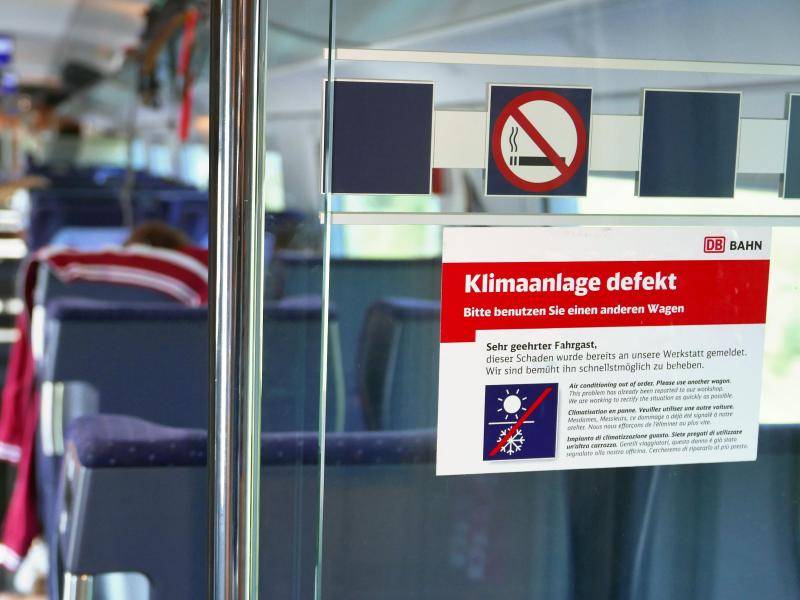Problems at Deutsche Bahn More than every second long-distance train with defects
Bonn · Many long-distance trains of Deutsche Bahn are in service despite having defects – often to the annoyance of customers, for example when reservation notices or toilets fail. The Group is investing heavily to reduce the error rate.
Missing reservation displays, sockets without electricity, closed on-board bistros: considerably more than half of the long-distance trains operated by Deutsche Bahn (DB) in June were running with technical defects and restrictions. The safety of the passengers was not endangered, as can be seen from an answer of the Ministry of Transport to a inquiry of the FDP parliamentary group in the Bundestag.
In June, around 38 percent of the ICE and IC trains in service were fully operational - the lowest figure to date in 2019. In May, the figure was 46 percent. The "Bild" newspaper had previously reported on this.
The statistics do not show exactly which defects were involved and whether they meant greater restrictions for passengers. "The "technical availability at initial provision" measured by DB serves internal control purposes and takes even the smallest technical restrictions into account," the railway announced on Wednesday. "The published statistics include even the smallest disruptions, most of which cannot be noticed by our customers", said DB long-distance head Michael Peterson in Berlin on Wednesday. "The most important thing: our trains are all 100 percent safe.“
Because if defects on a train endanger safety, it won't even leave the workshop in the first place. The group did not give any figures on how many trains this affected. However, the number of trains used daily decreased in the course of the first half of the year. While an average of 384 trains could still be provided daily in January, this figure was at 375 in June. In that month, Deutsche Bahn had to contend with numerous delays and train cancellations due to extreme heat and severe storms.
For July, no data on trains was made available. However, the punctuality rate had improved again. Nevertheless, cancelled reservation notifications or defective toilets are frequent annoyances for rail customers. "The fact that more than every second long-distance train is still running with defects shows that Deutsche Bahn AG cannot meet its own quality standards," said Torsten Herbst, chairman of the FDP parliamentary group in the Transport Committee of the Bundestag. "If you want to attract more passengers to the railways, you must finally ensure that the repair of long-distance trains functions better.
Compared to the previous year, however, the proportion of trouble-free trains has increased significantly. According to media reports from December, not even every fourth long-distance train ran completely error-free at that time. Deutsche Bahn intends to invest around half a billion euros in the expansion of maintenance facilities in order to improve the availability and operability of the trains. The company has already hired more than 500 new employees at its own plants, 500 more are to follow.
In mid-July, Deutsche Bahn announced the expansion of the ICE plant in Hamburg, including additional auxiliary workshops and extended shunting and parking facilities. Since Wednesday, the ICE plant in Berlin-Rummelsburg has also been expanded. Around 260 million euros will be invested in the site for this purpose. "We work hard every day to ensure that our customers are travelling with technically flawless trains," said Peterson, head of long-distance traffic.
Nevertheless, from the point of view of the Pro Bahn passenger association, the Group has recognized the problem, but has not yet sufficiently remedied it. "At the moment the situation is by no means satisfactory," said spokesman Detlef Neuß. Above all, there is a lack of personnel, even at the larger stations, to quickly repair defects such as defective doors or toilets. This leads to unnecessary inconvenience for passengers. There is also a lot of catching up to do in terms of IT personnel.
(Original text: dpa / Translation: Mareike Graepel)



